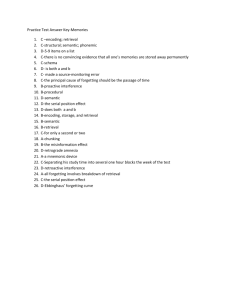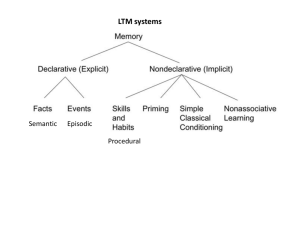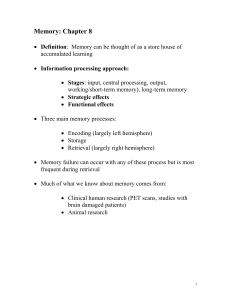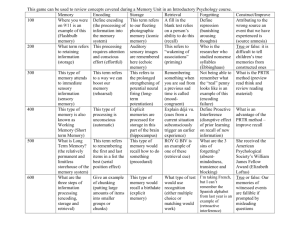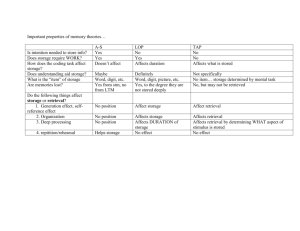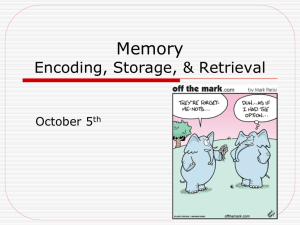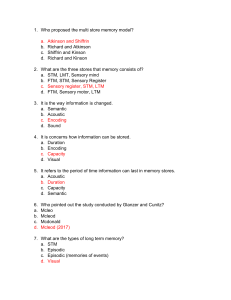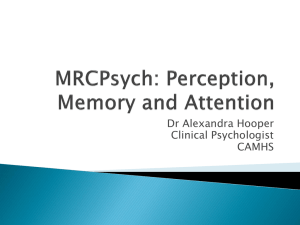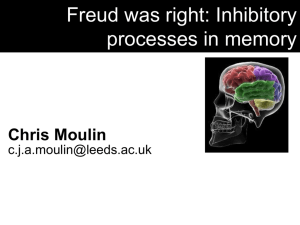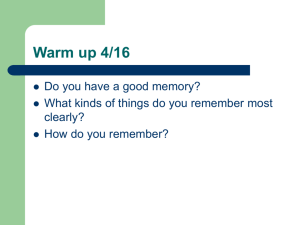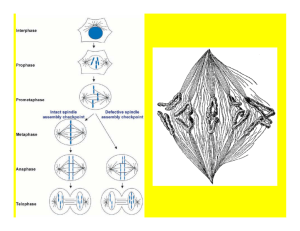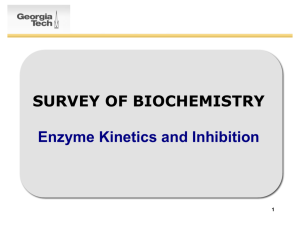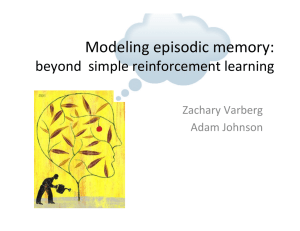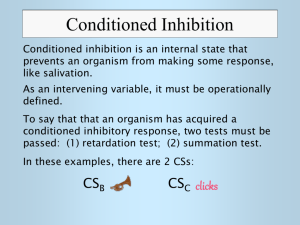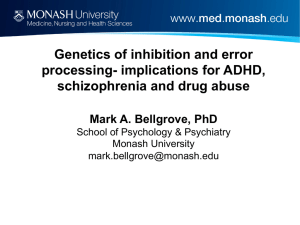Intentional and automatic inhibition of memory processes
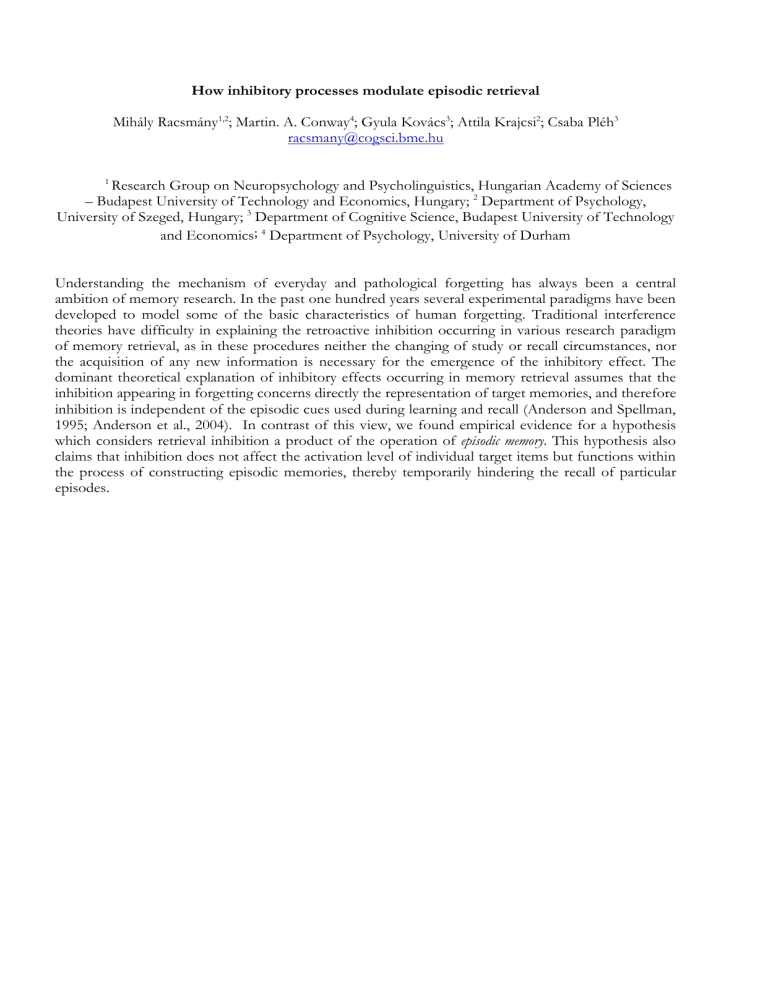
How inhibitory processes modulate episodic retrieval
Mihály Racsmány 1,2 ; Martin. A. Conway 4 ; Gyula Kovács racsmany@cogsci.bme.hu
3 ; Attila Krajcsi 2 ; Csaba Pléh 3
1 Research Group on Neuropsychology and Psycholinguistics, Hungarian Academy of Sciences
– Budapest University of Technology and Economics, Hungary;
University of Szeged, Hungary; 3
2 Department of Psychology,
Department of Cognitive Science, Budapest University of Technology and Economics; 4 Department of Psychology, University of Durham
Understanding the mechanism of everyday and pathological forgetting has always been a central ambition of memory research. In the past one hundred years several experimental paradigms have been developed to model some of the basic characteristics of human forgetting. Traditional interference theories have difficulty in explaining the retroactive inhibition occurring in various research paradigm of memory retrieval, as in these procedures neither the changing of study or recall circumstances, nor the acquisition of any new information is necessary for the emergence of the inhibitory effect. The dominant theoretical explanation of inhibitory effects occurring in memory retrieval assumes that the inhibition appearing in forgetting concerns directly the representation of target memories, and therefore inhibition is independent of the episodic cues used during learning and recall (Anderson and Spellman,
1995; Anderson et al., 2004). In contrast of this view, we found empirical evidence for a hypothesis which considers retrieval inhibition a product of the operation of episodic memory. This hypothesis also claims that inhibition does not affect the activation level of individual target items but functions within the process of constructing episodic memories, thereby temporarily hindering the recall of particular episodes.
